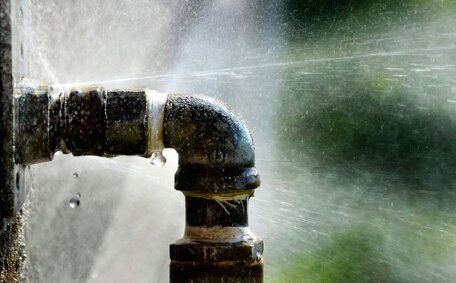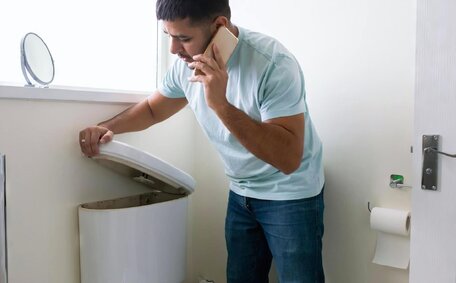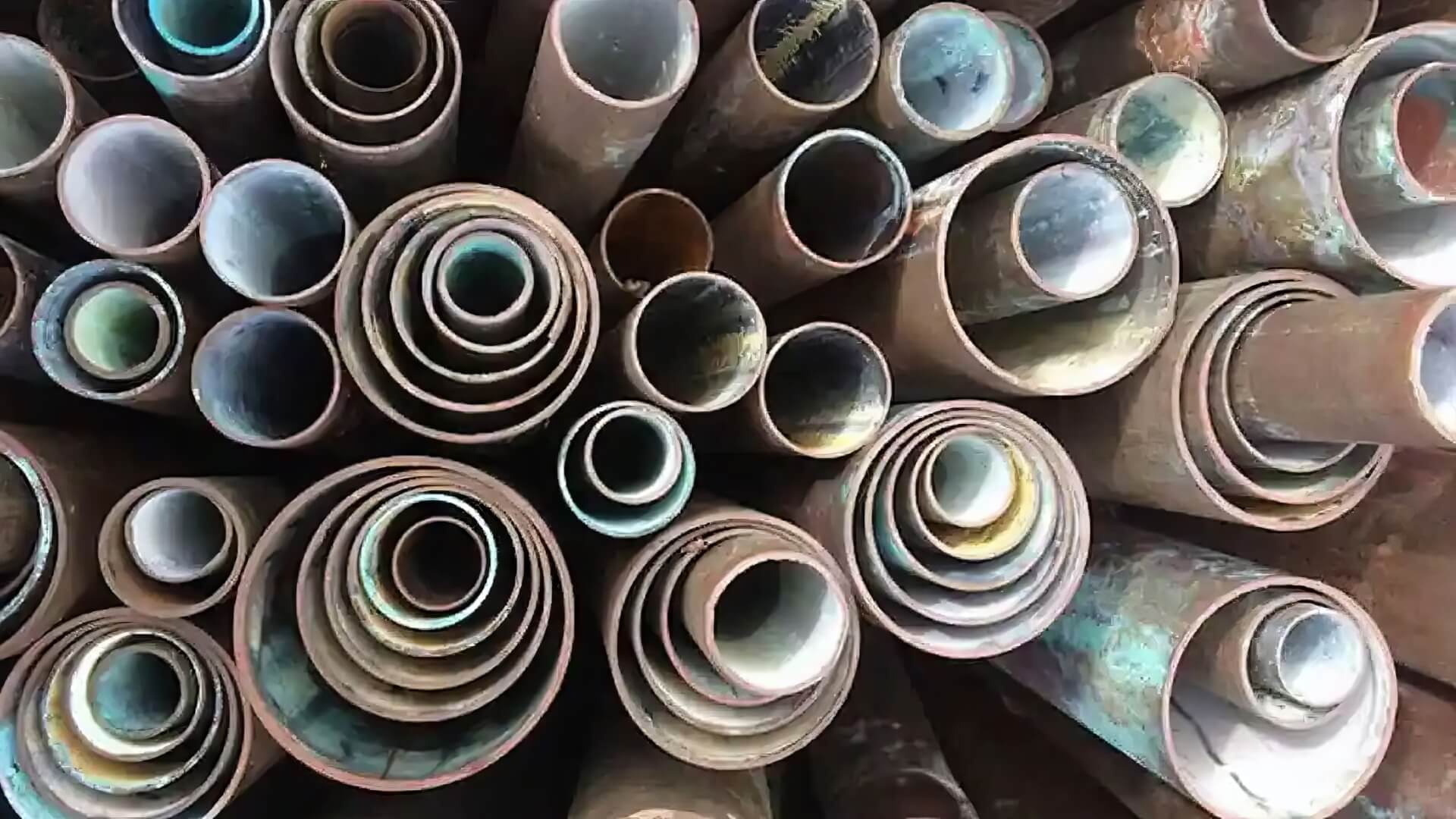
10 Signs Your Hot Water Heater Will Fail
If your water heater is old, leaking, rusty, noisy, not heating water properly or has low pressure, it could fail soon. Get your hot water system inspected today.
Read MoreUnaddressed blocked drains often result in significant inconvenience. Some of the most frequent culprits of clogged drains include accumulations of hair, grease, soap residue, and foreign objects like toys or hygiene products that were accidentally flushed down the toilet.
Fats, oils, and soaps solidify on pipe walls, leading to blockages. As more debris sticks, it forms a mass that blocks water and waste from passing freely. Tree roots invading exterior drainage pipes can crack lines and impede flow.
Obstructions can cause backed-up pipes, flooded sinks, slow drainage, sewage overflows, and foul odours. Left unresolved, drain clogs can promote backups that damage your walls, floors, and your home’s foundation; or infiltrate yards to create health hazards. Severe cases can require repairs to fix your blocked drains or the hot water system and replacements which incur great expense.
Regular cleaning and maintenance, by understanding blockage causes, are essential to prevent costly repairs. Catching a clog early also allows for simpler fixes before the problem escalates into a complex, hazardous and costly issue.
Consulting drain specialists for routine maintenance checks further helps minimise down drain risks.
Grease, fats and oils are some of the most troublesome substances that contribute to blockages in your drain. As these thick liquids cool down pipes, they coat the interior walls and harden over time. Small scraps and food particles then cling to these fatty deposits, allowing clusters to form and eventually clog drains.
Prevent grease buildup by avoiding pouring fats, oils and scraps down sinks. Place strainers in sink drains to catch debris and prevent grease from solidifying. Prevent grease buildup by avoiding pouring fats, oils and scraps down sinks.
Mop spilled oils into a receptacle rather than hosing them into drain systems.
Weekly, Use a mix of boiling water, baking soda, and vinegar to dissolve grease and maintain clear pipes. Use sink stoppers to contain the mixture for 5-10 minutes before a hot water flush to address blockages effectively.
A mixture of 1/2 cup baking soda and 1 cup vinegar can effectively treat a standard kitchen sink drain. This eco-friendly solution helps dissolve blockages before they worsen.
For oily kitchen messes that result in drainage issues, maintain a stock of paper towels or rags to mop splatters instead of hosing them where the drain can be affected. Properly discard soaked towels to prevent piping contamination. Proper disposal practices significantly reduce grease transfer into drains.
Despite regular cleaning, grease buildup can still occur due to typical kitchen use. Have pipes inspected yearly and request professional drain cleaning from services near me if needed to clear more stubborn fatty blockages. Our local specialists use high-pressure jetting to remove tough grease deposits and ensure optimal drain flow.
Hair contributes significantly to clogs in bathroom sinks, tubs, and showers. As strands wash down drains, they can knot and tangle into sizable obstructions that block water flow. Soap scum sticks to hair, trapping more debris, expanding clogs and impeding drainage.
To prevent hair clog formation, install drain catchers or screens to collect more than just strands around sink and shower drains. Clean out screens routinely when they appear coated with hair strands. Regularly sweep up hair from washroom floors and corners to prevent accumulation.
Hair catchers for showers, whether wall-mounted or floor grate covers, effectively capture shed hair. Some models feature removable meshes that simplify debris cleanup.
Monthly maintenance can further help curtail clogged drain issues. Repeat treatments help clear your drains of obstructions. Follow up by flushing pipes with more hot water systems to rinse away residue.
Regularly pour a boiling mixture of vinegar and baking soda down shower drains and sink pipes to dissolve buildup.
For basins prone to heavy hair shedding, request professional drain cleaning every 4-6 months as preventative maintenance. Powerful equipment can suck out packed clumps of hair that gradual at-home treatments cannot adequately clear.
Aside from hair and grease accumulation, an assortment of solids can clog drains when accidentally flushed or washed into pipes. Objects like toys, utensils, hygiene products and more can obstruct interior walls alone or in conjunction with other debris.
Outdoor areas encounter similar issues when dirt, leaves, plants and other natural materials wash into exterior drainage systems, potentially causing blocked stormwater pipes during storms or flooding. Gutters also readily capture drifting leaves and twigs.
To protect exterior drainage, ensure downspouts direct water at least 1.5m from foundations. Install gutter guards to limit leaf filling while protecting gutters with screens to catch debris. Use drain covers to prevent leaves from blocking outdoor drain grates after heavy weather as well.
For indoor lavatories, avoid actions that could lead to a blocked toilet, such as flushing anything besides toilet paper, including wipes and feminine products which snag easily. Use drain catchers and hair traps to filter out objects like shed strands. CMout frequent hair removal from these fittings helps obstruct larger items from entering pipes as well.
Monthly preventative drain maintenance using boiling water, baking soda and vinegar helps dissolve smaller obstructions before they amass into major blockages. Despite initial flush-through, small objects can eventually combine with household residue to form blockages. Routine cleaning ensures nothing is going down your pipes that shouldn’t be.
Plumbing systems naturally deteriorate over time due to constant water flow, accumulated debris, and ageing. As cracks, holes and breaches form, leaks can spring and water may pooling around pipe infrastructure. If left unrepaired, accumulating water can damage surrounding areas or foundations.
Minerals like calcium, magnesium, and silica gradually deposit inside pipes, reducing water flow. As these minerals build up along inside walls, they harden into scales that narrow drainage, impeding flow and drainage capacity.
For preventative maintenance, request CCTV drain inspections every three years to assess erosion damage or mineral scaling. Our plumbers can identify issues early and recommend pre-emptive solutions. If replacement is needed, pipe relining presents a trenchless method for installing new piping inside existing drains.
Annual examinations and drain cleaning are advisable to remove mineral buildup and ensure optimal flow. Our hydro jetting equipment removes scales and obstructions from all bends and joints.
For chemical drain prevention between scheduled maintenance, use store-bought drain cleaners monthly to dissolve minerals and keep drains sediment-free. Seek natural, eco-friendly formulations as these cleaners can be gentle on pipes and safe for the environment.
Implementing regular drain maintenance is one of the most effective methods to prevent clogs and keep pipes clear. Simple weekly treatments such as pouring hot water mixed with baking soda and vinegar down your specific type drain helps clear blocked passageways before obstructions form.
Monthly professional cleaning by our skilled drain plumber also uses high-powered jetting to flush out more stubborn accumulations.
This illustrates why we advocate for installing hair catchers and drain screens; they adeptly filter out debris around areas prone to clogging such as bathroom sinks and shower stalls. Frequently emptying these fittings prevents mass buildups from entering the pipes. Refraining from pouring fats down kitchen sinks also minimises grease transfer.
Further preventative steps include having pipes camera inspected every 1-3 years to identify damage and mineral deposits before they obstruct drainage flow. Early pipe relining repairs can then reinforce infrastructure integrity.fork frequent cleaning and observation of household drains helps identify potential issues early.
Though following these maintenance practises requires diligence, improving awareness of drainage systems greatly reduces blockage instances. Investing in professional assistance from our team for ongoing pipe and drainage care also provides peace of mind your system functioning optimally for years to come.
Try these DIY methods to clear minor drain blockages before calling a professional:
Caution should be exercised with DIY methods to avoid scalding or further contaminating pipes. Contact our team of plumbing professionals if clogs persist after 2-3 attempts, as they’re equipped to tackle stubborn blockages with expertise. We have the high-powered equipment to clear even the most stubborn obstructions while inspecting drain integrity.
While minor drain clogs can often be remedied with simple DIY methods, more severe or recurring blockages typically warrant contacting professional plumbing services.
If kitchen or bathroom sinks remain clogged after boiling water, plunger, or baking soda interventions, mechanical removal may be necessary. Our team has high-powered hydro jet equipment that can scour stubborn obstructions lodged deep within pipes with precision.
We advise professional help for fully backed-up fixtures causing flooding or sewage overflows. Hazardous backups might need a drain snake or rodding to clear.
Reduced water flow in multiple fixtures could indicate a blocked sewer line impeding fluid movement. Professionals use advanced camera technology to inspect pipes and determine appropriate solutions.
Slow-draining or frequently clogged drains can signify damaged or deteriorated pipes, necessitating immediate attention. Our experts can pinpoint issues areas through CCTV inspections and advise proper repairs like pipe relining or replacement.
Adopting eco-friendly drain care practises and implementing regular maintenance are the most sustainable solutions for long term blockage prevention.
Using boiling water, plungers and baking soda vinegar mixtures to clear minor clogs quickly can help avoid future blockage formation and expensive repairs into your plumbing system. Installing hair catchers, screens and gutter guards is the best drain strategy to limit debris entry and promote effective drain flow.
Professional pipe inspections every 1-3 years and hydro jetting every 6-12 months prevent buildup and spot issues early. Both trenchless drain repairs and non-toxic drain cleaners present greener options as well.
Staying vigilant of your drainage systems through active observation and maintenance ensures water down drain is free-flowing, safeguarding pipe integrity over decades of use. Keeping water down the drain clear prevents backups, flooding hazards and the need for pipe replacements.
For drain maintenance services in the Gold Coast, reach out to the experts at Mortdale Plumbing on 1300 349 338 or jobs@mortdaleplumbingservices.com.au. Our specialised drain solutions keep your pipes running efficiently for years to come.
If your water heater is old, leaking, rusty, noisy, not heating water properly or has low pressure, it could fail soon. Get your hot water system inspected today.
Read MoreIf you have plumbing fixtures that are over 10 years old or showing signs of wear like leaks and cracks, it’s important to replace them to prevent more costly water damage in the future. Replacing worn fixtures improves water efficiency.
Read MorePipe relining is a trenchless method that renews pipes from the inside out. It involves draining, drying and scrubbing the pipe interiors before applying materials like silicone, PMMA or epoxy resins to create a resilient, soft, temporary liner inside the existing pipes.
Read MoreMortdale, 2223 NSW
We will call back as soon as possible.




